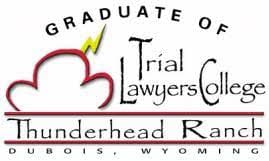TAMPA PERSONAL INJURY ATTORNEYS
Calandro Law
When you NEED to win
INJURED? CALL US AT (813) 563-6463
Personal Injury Attorney in Riverview, Tampa & Ruskin, FL
Why You Need a Lawyer for Car Accidents in Florida
Personal injury insurance and other forms of insurance do not typically provide full coverage for medical costs. Lawyers help ensure that you receive the settlement needed to cover your costs.
We are located at 10027 Water Works Lane Riverview, FL 33578, serving clients in Hillsborough County, surrounding areas, and all throughout Florida. Along with vehicle accidents, we have experience with many other areas of law, including nursing home negligence. If you suspect abuse or neglect is occurring, do not hesitate to contact a nursing home negligence lawyer in Riverview, Apollo Beach, or Ruskin, FL.
● You or a loved one was injured in a car accident.
● You lost work due to a recent car accident.
● Your insurance claim was denied.
● The proposed insurance settlement was too low.
● A car accident resulted in significant property damage.
If you find yourself dealing with one or more of these issues, contact the top accident injury lawyer in Riverview, Apollo Beach, and Ruskin, FL.
We are available 24/7 to address your legal concerns. Get in touch today to discuss your car accident or legal situation. Call now!
CLIENT TESTIMONIALS

PRACTICE AREAS
Calandro Law, located in Riverview, Florida is a full-service personal injury law firm. Our attorneys have handled everything from car accidents, motorcycle accidents, truck accidents, brain injuries, spine injuries, premise liability cases, and wrongful death cases. We have also settled cases for over 7 figures. With over a decade of experience, Calandro Law is your best choice to attain maximum compensation for your injuries.
Our expert team of personal injury attorneys can help you and your family. It is more than just a case to us, our clients are our number one priority. Are you grappling with the ramifications of a life-changing injury? We will fight to help you and your family.
CAR ACCIDENTS
Motorcycle Accidents
Truck Accidents
Brain Injury Accidents
Nursing Home Abuse
Toxic Mold Cases
OUR PROCESS EXPLAINED
We care about our clients. When dealing with Calandro Law, you will be our priority. All communication will be with your actual attorney.
If you have been involved in a car accident, call or text us after you call 911. You’ll be connected with one of our attorneys who will be able to guide you. We will handle all communication with the insurance companies and gather all the information necessary for your claim. After that is done, our attorneys will meet with you to determine the next steps for your case. Remember that when you to win, call Calandro Law in Riverview.
You’ll Speak Directly With a Lawyer
You’ll be educated on the process each step of the way
You’ll be the top priority
MEET THE CALANDRO LAW TEAM

At Calandro Law, we believe that communication with our clients is important. At a Mega Firm, no one ever gets to talk to their attorney. Clients end up communicating primarily with a case manager. Calandro Law is different. Our personal injury attorneys actually talk to their clients and help them understand the legal situation they are facing. Our team also provides the critical guidance our clients need to help them find the best medical treatment.
Our firm is always ready to speak to anyone who has any questions. We are a full-service personal injury law firm located in Riverview, Florida. Feel free to contact us using the contact form or call us. Accidents and injuries happen at any time of the day. We are available 24/7.
$0
Case Reviews
24/7 Access
$5M+
Case Reviews




